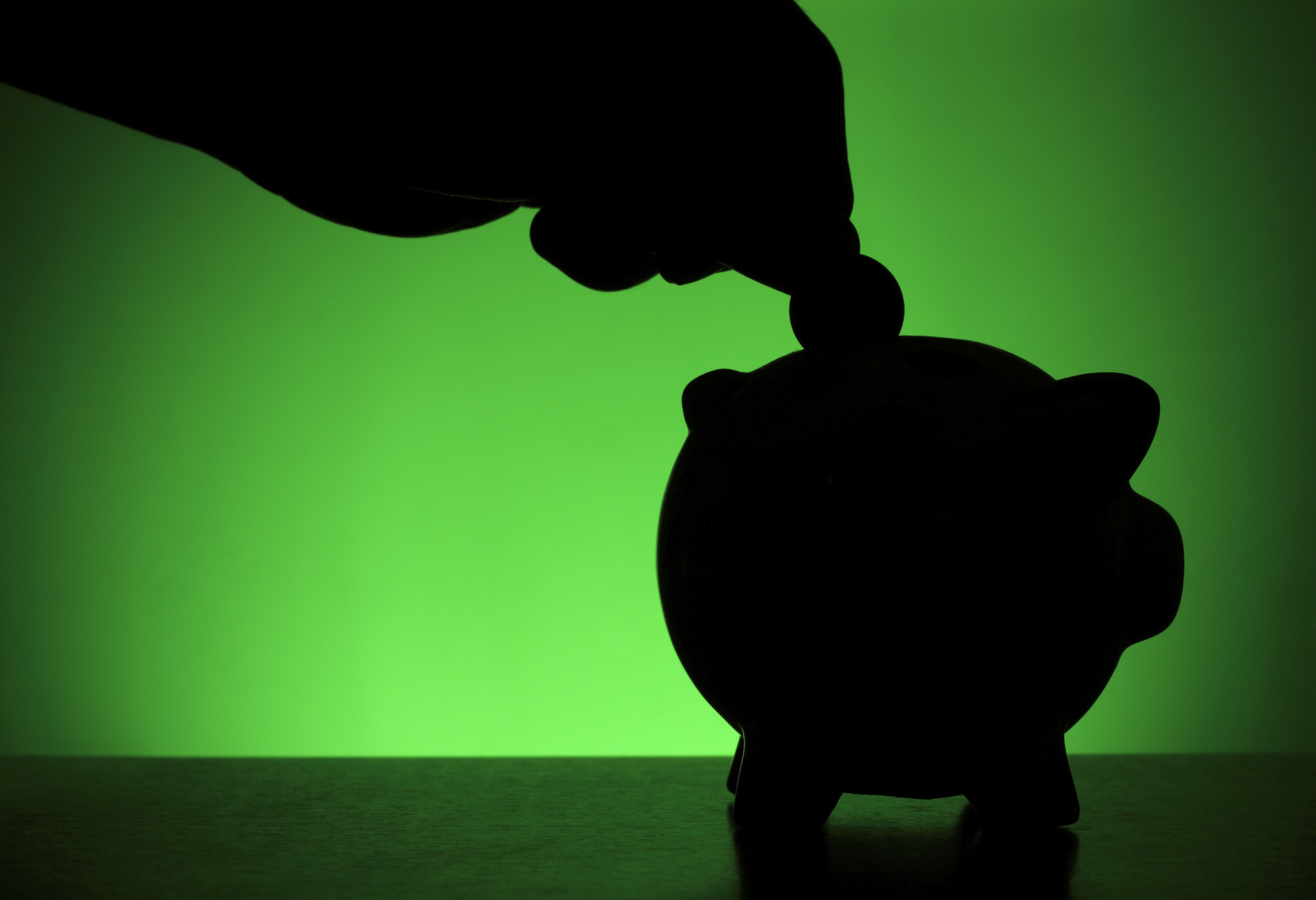It’s hard to think about saving for the future with expenses due today, coupled with shopping for non-essentials or spending money on other things, such as eating out or going on vacation. While those things are important too, it’s also a smart strategy to think about saving for the future to be able to enjoy life and still meet day-to-day expenses many years from now.
Also, important to consider is that life doesn’t always go as we plan. Job losses, cut hours, injuries, the car goes kaput, major appliance breaks, or an event, such as a pandemic, occurs. Strategically planning for the future with the money we have now is one of the best investments we can make.
Create a Budget
The first order of business is to create a budget. Sit down and make a list of all current income and expenses. Then list fluctuating expenses. Once you see your cash flow situation, it’s easier to take a realistic and honest look at your financial health. This is a true test of the ability to learn the difference between want and need. Once you do that, you can cut out any non-essentials being spent. Designate anything cut from the budget and divert it to savings or investments.
Build an Emergency Fund
Setting an emergency fund is one of the earlier steps to take when planning for our financial futures. This fund, which should only be touched in the event of a true financial need, will safeguard against dipping into any savings designated for the future. Ideally, saving for three to six months expenses is a good-sized emergency fund.
Start Saving Early
Whatever our financial goals, it’s always best to start now. In life, it is inevitable something will always come up that requires us to spend money. The earlier we start saving, the less of a negative financial impact will be felt when the unexpected occurs.
Tackle High-Interest Debt
Debt has an awful tendency to snowball if we’re not on top of it. As you make a commitment to savings, also commit yourself to pay down high-interest debt. The quicker you can eliminate high-interest payments, the better position you’ll be in to meet your financial goals for the future.
Automate Savings
Every time you get paid, you should set aside a portion to go towards your savings. Whether the money is sent to a savings account, 401(k), IRA, CD, 529, or other investment, try to make it consistent. You’d be surprised to see how quickly savings for the future accumulate once you make a commitment. Talk to your local bank or credit union about options where you can have money directly deposited from your paycheck.
Start Saving Today
Many people wonder when the right time is to start saving for the future. Putting money aside is one of those tasks people always seem to fall into the mindset of, “I’ll start that tomorrow.” However, our answer to this question is always. The time to start saving is right now. The earlier you start, the more financially secure you’ll feel down the road. You’ll also be able to handle any unexpected expenses life throws at you. If none occur, then you can enjoy your financial stability and spend without worry.
For more financial advice and ways to save money, give the team at 1st Community Credit Union a call at 888-706-1228.
If you have been dreaming about spending your days camping, boating, or snowmobiling, you may be a good candidate for a recreational loan. Recreational vehicles can be expensive, but a recreational loan gives you the ability to purchase the vehicle you want on payments. Below are five things you should know about recreational loans before you sign on the dotted line.

- Recreational loans aren't just for RVs.
Even though recreational loans are often called RV loans, they can be used to finance many different types of vehicles. In addition to campers and motor homes, you can also use these loans to finance boats, ATVs, snowmobiles, scooters, personal watercraft and more.
- You can finance up to 100 percent of the cost of your recreational vehicle.
Most loans require you to pay a down payment at closing. However, when taking out a recreational loan, you can get funding for your entire purchase. This means you won't have to worry about saving up for a down payment before you can purchase your new vehicle.
- You can refinance existing recreational loans.
If you want to get better terms on an existing recreational loan, or if you want to give yourself more time to pay for your recreational vehicle, you can apply to refinance. At 1st Community Credit Union, we can help you refinance virtually any recreational loan.
- Terms of up to 10 years are available.
Unlike a standard auto loan, which is often capped at five or six years, recreational loan terms of up to 10 years are available on some loans (subject to restrictions). This gives you more time to pay the full balance of your purchase and lowers your monthly payment amount.
- You can get a preapproval.
It can be difficult to determine how much you can afford to spend on a recreational vehicle. With a preapproval, however, you will know the upper limit of your price range, making it much easier for you to find the perfect vehicle to purchase. In addition, a preapproval will speed up the process of closing the deal after you have found the vehicle you want to buy.
1st Community Credit Union is proud to offer recreational loans to clients purchasing any type of recreational vehicle, from snowmobiles to campers. Loan terms of up to ten years are available, depending on the specifics of your purchase. In addition, if you are a qualified borrower, we can finance up to 100 percent of your recreational vehicle's purchase price, so no down payment is required.
Are you ready to start shopping for the perfect recreational vehicle? 1st Community Credit Union offers free preapprovals. Please contact us today to get started or to learn more about our loans.
It's natural for our ears to perk up with we hear about a sensational new product, and even more so when they are offering a Free Trial.
Many consumers are eager to take advantage of a free product trial offer but unfortunately they wind up falling victim to fees. The "Free Trial" trick deceives consumers daily by hiding the specifics within the teeny tiny fine print, which can result in enormous shipping fee charges, making it nearly impossible to cancel the trial, or a hopeless pit of unexpected spending. Whether it's a secret subscription or a furtive fee, these free trials do not always end up being as "free" as you originally hoped, liked or anticipated.

Be smart about these "special" offers and follow these tips before you take the plunge:
- Research The Company. By doing a little investigating, you'll be able to see how credible the company really is. Read some reviews. Hear what others have to say. This will allow you to know if you're hitting a home-run success or a strike-out scam.
- Read The Terms And Conditions. This is a common mistake made by many prior to purchase. Hidden in the depth of legal jargon and mumbo-jumbo lies the root to your problems. Make sure you do not just sign off or give away your information before reading the fine print.
- Beware Of Pre-Checked Boxes. Companies will sometimes "help" you by checking boxes automatically. This grants them permission to sign you up for other programs or products - even if you do not want them or do not know about them. So when you see a box, make sure it's not checked unless it's something you chose or want.
- Mark Your Calendar. By being proactive and knowing when your free trial subscription ends, you'll be able to cancel the offer before it rolls into the unwanted and unfortunate not-so-free year-long commitment.
- Know How To Cancel Your Subscription. Although this may sound elementary, it is a very important fact to know. Whether it's a limited time frame for cancellation or just a convoluted conundrum, make sure you know exactly how to end the trial.
- Read Your Credit And Debit Card Statements. Frequently check your statements to know if there is a strange charge on your accounts. If you see something strange, call the company to hash out the situation. If that doesn't work, call your card issuer and dispute the charge.
Make sure you're not flooded with secret bills and unwanted trial continuations. Be smart and be aware of the logistics behind every free trial you subscribe to because, before you know it, that free trial won't be so free anymore.
Stores and manufacturers like to offer deep discounts on certain popular products at specific times of the year. If you love a good sale, time your purchases so you can take full advantage of these traditions. The following list shows the best month to find the best prices on popular items:
January – Sales revolve around New Year’s resolutions about getting in shape, or people looking for items to keep their home’s interior cozy during the cold winter.
Fitness products, TVs, electronics, bedding and linens
February – Comfy interiors continue to be high priorities on everyone’s To-Do list. People in the Northern states also need to deal with ice and snow.
Mattresses, humidifiers, interior paint, snow blowers, winter apparel and sporting equipment
March – Many are planning kitchen renovations. It’s also time to introduce new models for digital cameras.
Countertops, space heaters, digital cameras
April – Spring cleaning is on everyone’s mind, for the interiors and exteriors of their homes.
Vacuum cleaners, lawn mowers, tractors, air purifiers
May – Time to begin sprucing up the exterior of homes and after a hard-day’s work, enjoy a good barbeque!
Roofing, siding, and decking materials, gas grills
June – Summer begins, and many people can now really work on the exterior of their homes.
Pressure washers, cordless drills, string trimmers, smartwatches
July – Hot and humid, so you’ll find appliances to keep yourself dry, cool, and clean.
Dehumidifiers, laundry machines, dish washers, refrigerators
August – It’s Back-to-School season, so you’ll find the best prices for pricier school supplies.
Laptops, headphones, printers
September – You’ll find items to help to clean up your house, inside and out.
Leaf blowers, washers, dryers
October – Time to check or replace smoke detectors and get ready for winter.
Smoke detectors, snow blowers, interior paint
November – A favorite month for Shopaholics because the biggest discounts are offered, starting with Veteran’s Day and ending with Black Friday and Cyber Monday.
Blenders, coffee makers, fitness trackers, TVs, refrigerators

December – The biggest gift-giving season heralds multiple sales on nearly everything through the entire month. It’s also when car dealerships try to meet their end-of-year sales quotas.
Headphones, wireless speakers, fitness trackers, cordless drills, smartwatches, automobiles
It's easy to postpone starting to save for a later day, but a solid plan is key to success. By following some basic guidelines, you're more likely to achieve financial security.

Pay yourself first.
Use automated transfers to get in the habit of saving. Money will be transferred from your account without you seeing it, which makes you less likely to miss it. When you enroll in 1st CCU Anywhere it's easy to set up and monitor your automatic transfers between accounts.
Save 10% of your paycheck.
The general rule of thumb is to save about 10% of each paycheck. If that seems too high, try 5% and work your way up to saving 10% of your earnings. Add 1% every year you get a raise until you reach 10%.
Know yourself.
Examine your goals to determine which savings plan will work best for you. For example, don't invest all your money in an aggressive stock or mutual fund if you're conservative with your money. If you're saving for retirement, select a plan that will fit your financial needs down the road.
Realize that age matters.
Always take into consideration how much time you have to save for your goal. If you are a recent college graduate, you have several decades to ride out the highs and lows of the market and can take advantage of more high-risk investments. If you're only a few years from retirement, less risky investments are a better option.
See the benefit of compound interest.
The simplest way you can invest your money is to leave it alone and let it "compound" over time. You earn interest not only on what you save, but also on the dividends generated. The earlier and more you save, the more your money will grow.
Use dollar-cost averaging.
This is the process of routinely investing a set amount of money over time, rather than all in one lump sum. It's a convenient savings method, particularly for beginning investors. For example, each month transfer $25 or $50 from your share draft account directly into an investment vehicle such as a traditional or Roth IRA. You reduce your overall risk from market fluctuations because your money buys more shares when the price of a share is down, and your money buys fewer shares when the price of a share is up. Bottom line: You've reduced your investment risk.
Use the Rule of 72.
To figure out how long it will take for your investment to double with compound interest, use this rule: Divide 72 by the interest rate you expect to receive on an investment. For example, if your investment earns 4% interest, your money will double in 18 years (72 divided by 4 is 18).
Many Americans struggle financially, living paycheck to paycheck, hoping they have enough to cover all their bills at the end of the month. Life is easier if you have a cash cushion or an emergency fund, but how do you save when there is not much fat in your budget?
First, you need to find out where your money is going. Start by tracking all your spending for 30 days. Everything, even a pack of gum, should be noted using any tracking method you prefer – a notebook, your smartphone, an online spreadsheet, whatever works best for you. Then categorize each expense. Start with these essentials:
- Rent/mortgage
- Utilities
- Food
- Transportation to get to your job
- Healthcare – prescriptions and co-pays
These five are priorities that must be paid each month. Everything else, like clothing, cosmetics, gym membership, etc., are areas where you can cut back and save a little. Here are a few other saving suggestions:
Entertainment – Look for low-cost ways to have fun.
- If you have a streaming service, discontinue it for a few months. For example, a service that costs $25.00 per month means you’re spending $300 per year – that’s a month’s worth of groceries.
- Get a library card to check out movies and video games instead of renting them.
- Listen to podcasts. There are over a million to choose from on all subjects.
- Learn a new language or start a new hobby. Here again, the library can be your friend by providing free resources.
Food – Try to spend no more than 11% of your take-home pay on food.
- Shop for generic store brands instead of name-brand items. Many generic versions can be up to 60% cheaper.
- Use coupons and download your grocery store’s app for more deals.
- Buy vegetables in their natural form. Washed and cut vegetables can be twice as expenses.
- Buy only what you know you can eat in a week or two to avoid throwing away food. Use a free meal-planning app to help you shop.
- Make at least 75% your own meals instead of ordering from restaurants.
Energy bills – Changing habits can save you big money.
- Use a toaster oven, slow cooker, or other small appliance instead of the oven.
- Wait until the dishwasher when it’s full before using it and turn off the heated dry setting.
- Unplug unused appliances and power strips to avoid phantom loans.
- Turn off lights when you leave a room.
- Adjust your thermostat, especially at night and when you're away from home, to save on heating and cooling costs.

Credit Card Late Fees – Missing payment due date comes with a heavy price.
- To avoid late fees and protect your credit score, set up automatic payments to pay at least the minimum payment by the due date.
- If you can’t pay your bill in full each month, then use the card only for emergencies.
- If your credit card has a high interest rate, look for one with a lower interest rate. Check out the rates on 1st CCU's Visa Credit Card.
By cutting costs even just a little and putting those savings into an account, you will be able to pay bills with less worry and even save for fun trips or a special gift.
